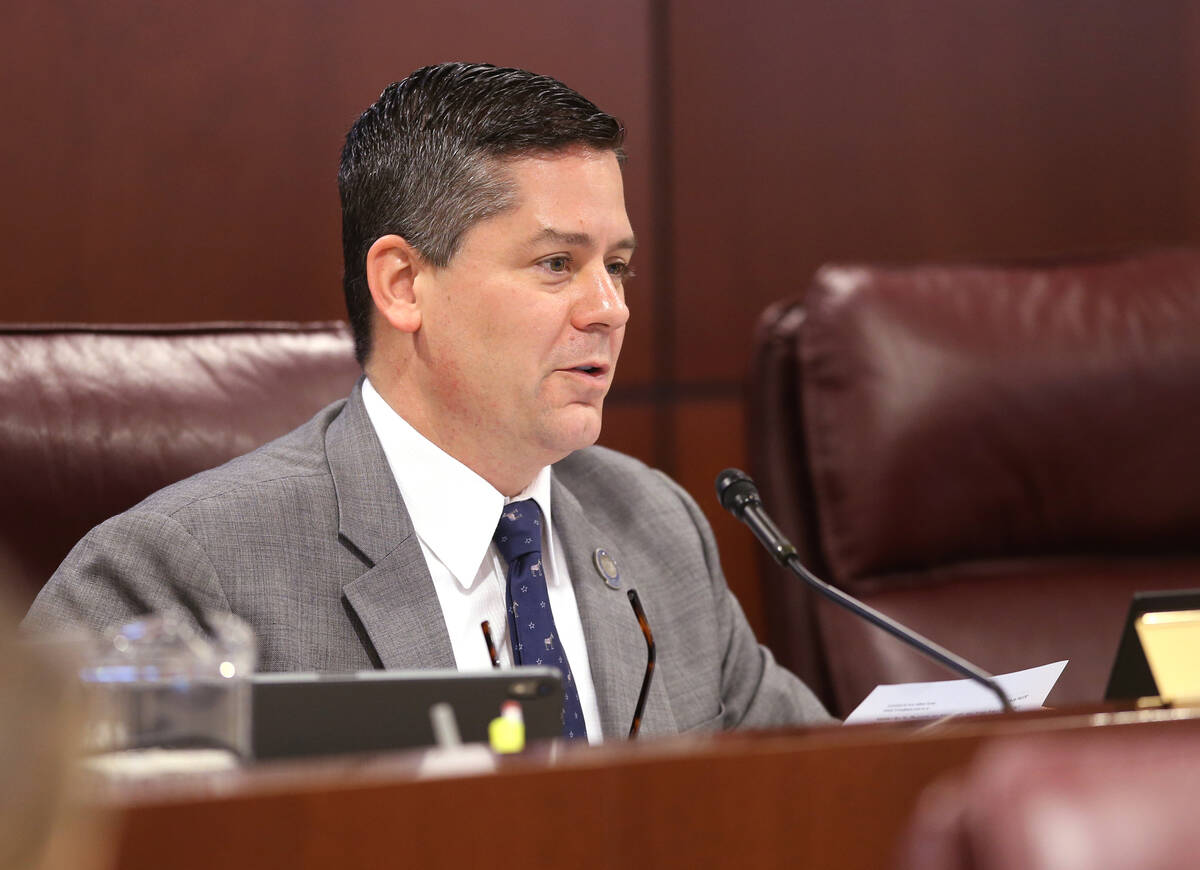Lawmakers trying to close tax loophole costing state millions
Legislation closing a tax loophole used by casinos and other large property owners passed a key hurdle this week after the tactic was revealed in a Review-Journal investigation last year.
The Assembly Committee on Revenue passed a bill Thursday that would require property owners to still pay the real estate transfer tax if a property is shifted to a business entity that was “formed for the purpose of avoiding those taxes.” The measure, Assembly Bill 448, was sponsored by Assembly Speaker Steve Yeager, D-Las Vegas, and Assembly Majority Leader Sandra Jauregui, D-Las Vegas.
Yeager told fellow lawmakers he doesn’t believe anyone is violating the law when deals are structured in complex ways that allow buyers and sellers to avoid paying these taxes, which support schools, low-income housing and other services in Nevada.
But since 2007, there were $27.5 billion in sales that “generated exactly zero in the real property transfer tax,” he said, echoing what the Review-Journal found.
Yeager said the loophole is only used by sophisticated companies that can hire attorneys and accountants to help structure these deals.
“I don’t blame them because they’re taking advantage of the tax laws as they exist,” he said. “But the taking advantage of that loophole really costs us all in terms of the money.”
Last May, the Review-Journal reported that at least $27.5 billion worth of transactions in the Las Vegas area — comprising roughly two dozen sales involving hotel-casinos, malls and other properties mostly on or near the Strip — had closed since 2007 without any publicly reported real estate transfer taxes.
In such deals, buyers often acquire a limited liability company or other entity that holds ownership of the real estate, instead of purchasing the property directly. The deals also frequently cite a transfer tax exemption allowed under state law when property owners shift real estate to a subsidiary, the Review-Journal found.
It’s the same exemption that AB448 seeks to change.
Yeager told the Review-Journal last month that he wasn’t aware of the issue until the newspaper reported on it.
Big sales, no transfer taxes
Overall, the state generated more than $330 million in transfer tax revenue last fiscal year. Among that, nearly $178 million was distributed to Nevada’s general fund; almost $63 million went to the Clark County School District; and $13.8 million went toward low-income housing, according to Nevada Department of Taxation figures.
However, the Las Vegas metro area has seen plenty of lucrative deals over the years that spared large companies from paying a tax routinely paid on the sales of homes and other properties.
Such deals include the $4.2 billion cash sale of Bellagio’s real estate; the $3.89 billion sale of Aria and Vdara’s real estate; and the $1.1 billion sale of luxury mall Shops at Crystals.
Collectively, those three sales alone could have generated nearly $47 million in transfer tax revenue, given Clark County’s transfer tax rate of 0.51 percent of a property’s sales price.
Instead, records show, their combined transfer tax bill came to nothing.
‘How many homes did not get built?’
https://www.youtube.com/watch?v=ZcTvhb2QsDU
Assemblyman Gregory Hafen II, R-Pahrump, told the committee he wants to ensure that if small businesses shift property to a limited liability company or a trust without changing ownership, the measure wouldn’t trigger a transfer tax bill for them.
Wiz Rouzard, deputy state director of Americans for Prosperity-Nevada, urged committee members to oppose the bill, saying it would be a challenge to prove the “sole purpose” was “tax evasion.”
Yeager said earlier that county recorders would determine whether an entity was formed solely to avoid transfer taxes, and he expects the Nevada Department of Taxation would provide guidance.
But Christine Hess, executive director of the Nevada Housing Coalition, told lawmakers that when her group read the news coverage on the issue, “it hit hard” because the transfer tax is “absolutely critical for affordable housing.”
“As we look at the taxes that were not collected over the years because of this loophole … we have to ask (ourselves) in this crisis, how many homes did not get built?” Hess said.
Contact Eli Segall at esegall@reviewjournal.com or 702-383-0342. Follow @eli_segall on Twitter. Segall is a reporter on the Review-Journal’s investigative team, focusing on reporting that holds leaders, businesses and agencies accountable and exposes wrongdoing.

















